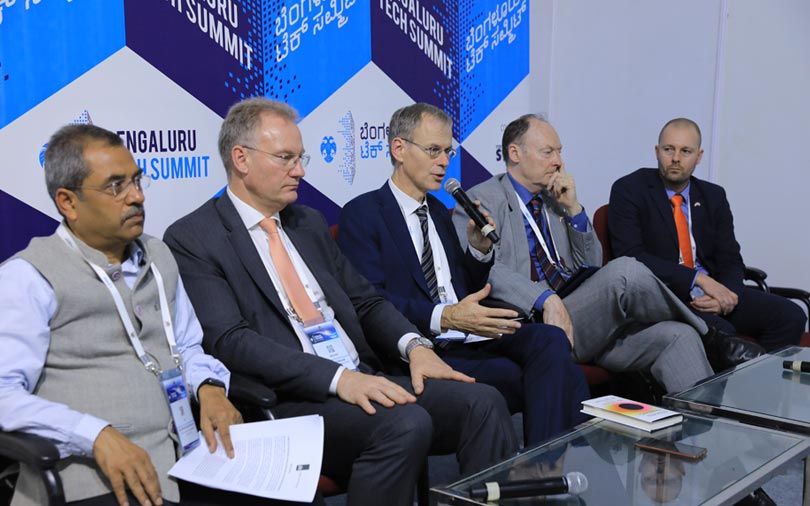
Govts of Karnataka, Netherlands partner for healthcare and cybersecurity research


The Karnataka government has partnered with the Dutch government to leverage the latter's expertise in healthcare, infotech and cybersecurity, as they announced in a joint statement that IT will be a key facilitator for cooperation between India and the Netherlands.
Dutch companies will help the Karnataka government's centre of excellence for cybersecurity to jointly augment the capabilities of the organisation. The joint effort will work on reducing the increasing number of cyberattacks and assessing their impact on economies.
“The two sides have what it takes to develop an ecosystem favourable for international partnerships to address our joint needs in areas such as research and development and capacity-building, thereby creating a skilled workforce, ready to take on challenges that the future holds for us,” said Gert Heijkoop, consul-general of the Kingdom of the Netherlands, in Bengaluru.

The governments said that as companies were focusing more on containing cyber risks, there was a significant digital talent gap in terms of cybersecurity skills.
Gaurav Gupta, principal secretary at the department of IT, biotechnology, science and technology with the government of Karnataka, said that the state has set a comprehensive plan to build a platform for cybersecurity at the centre. "We are eager to work on the challenges that we are all facing in the common cyber world today," he said.
The cooperation among the two governments started with a memorandum of understanding (MoU) between Karnataka and the municipality of The Hague in 2016. Another MoU between the centre of excellence in cybersecurity and the Hague Security Delta was signed in May 2018.

Through these partnerships, both governments are looking to promote mutual exchanges, research and development collaborations, knowledge sharing, skilling and training, and identify opportunities for commercialisation of high-value-added innovations in the area of cybersecurity.
“Cybersecurity needs a multidisciplinary approach to solve the challenges now and in the future. It also needs different stakeholders to be involved, be it businesses, scientific community or governments,” said Michel Rademaker, deputy director at The Hague Centre for Strategic Studies.
The governments are also making efforts to organise The Hague India Cyber Security Summer School at the centre of excellence for Cyber Security in Bengaluru. This will facilitate a large number of doctorate and master’s students from Karnataka in getting an opportunity to learn technical skills and interact with researchers in the cybersecurity ecosystem in the Netherlands.

The Netherlands is among the most connected countries in western Europe and has the world's third-largest internet exchange. It has invested in enabling the country to move towards an Internet of Things-based connected era.
Healthcare partnership
The government of Karnataka also announced a partnership to enhance cooperation with the Netherlands government's Living Lab programme, which was first announced in May this year. It was set up, by the Netherlands and the Karnataka governments to co-develop technology solutions in healthcare.

Gupta said that the Indian healthcare sector is projected to grow to $372 billion by 2023. “As the sector grows, it becomes imperative to encourage innovation and research and development in healthcare, while also ensuring that challenges of efficient distribution and delivery of healthcare services are mitigated. Digital transformation of the sector using new and emerging technologies such as internet of things, cloud services and wearable devices would play a key role in addressing these challenges,” Gupta added.
The objective of the programme is to “improve access to affordable healthcare via means of e-health and medical devices”, a media statement said.
